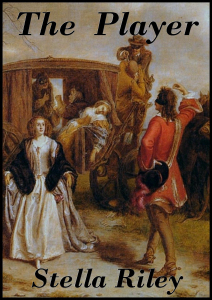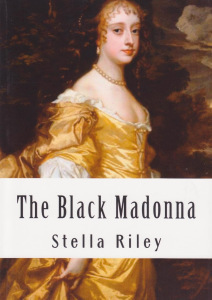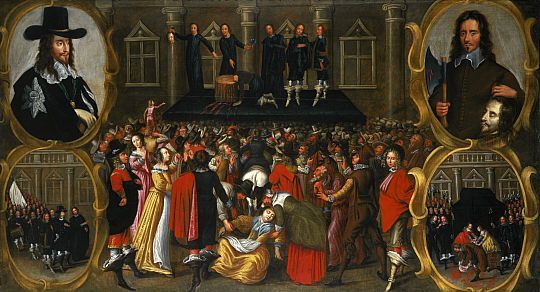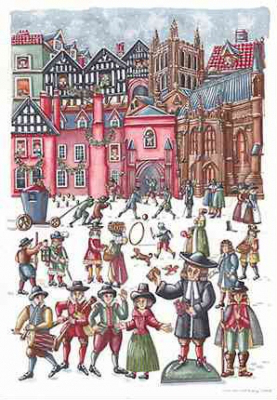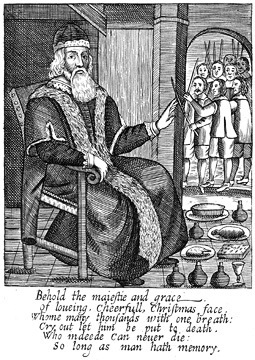Stella Riley's Blog, page 9
March 5, 2015
Meet THE PLAYER
��Third in the Rockliffe series, THE PLAYER is now available for purchase.
Find it at Amazon, Smashwords, Barnes & Noble, Kobo and Apple
Introducing Adrian Devereux, Lord Sarre – alias The Player
and Lord Nicholas Wynstanton, the Duke of Rockliffe’s younger brother.
The door opened and a pleasant voice said, ‘Is it just me – or does your man always look as if there’s a bad smell under his nose?’
Lord Nicholas glanced up, a kidney half-way to his mouth, and stared.
His visitor was tall, broad-shouldered and swathed in an ankle-length cloak. But his dun-coloured hair supported a hat that hadn’t been in fashion for decades – if ever – and his eyes were screened by the tinted lenses of a pair of spectacles.
Very, very gently Lord Nicholas laid down his fork.
‘Dev?’ he said incredulously.
Adrian Devereux, Lord Sarre grinned and held out his hand. ‘It’s good to see you, Nick.’
‘And you.’ Their hands gripped. ‘But what the devil is that thing you’ve got on your head?’
Adrian removed it and twirled it on one finger. ‘It’s called a hat.’
‘You may call it that. No one else would. And why are you wearing that ridiculous wig – not to mention blue-tinted spectacles? No wonder my fellow didn’t want to admit you. You look like a complete quiz.’
‘I don’t look any worse than you do in that dressing-robe. It’s making me go cross-eyed.’
‘Everyone says that. I don’t know why. Come and sit down. Have you breakfasted?’
‘Hours ago.’ Adrian tossed aside his maligned head-gear and removed his spectacles. ‘I’ll take some ale with you, though.’
Nicholas filled a fresh tankard and pushed it towards him. Then, reaching for the eye-glasses, he perched them on his own nose and said, ‘What do you think?’
‘You should keep them. They make you look positively intelligent.’
‘Well they don’t do anything else, do they? They’re just … blue.’
‘A stage prop,’ said Adrian. They weren’t, of course but he didn’t see any need to explain that he’d had them specially made.
‘Am I allowed to ask why you’re disguised as the kind of shady character who’d make me want to check my pockets?’
‘I only arrived in London yesterday and don’t want my presence known just yet.’
‘Very wise,’ approved his lordship. ‘That coat’s no better than the hat. Do you want an introduction to my tailor?’
‘Not if he’s responsible for that atrocity you’re wearing.’
Nicholas laughed and then, his dark eyes growing thoughtful, said slowly, ‘Benedict’s death has made a difference, hasn’t it? Are you going to assume your title and stay?’
‘That’s the general idea.’
‘It’s not going to be easy. Somebody’s bound to rake up the business with Evie Mortimer.’
‘I know.’
‘And if anyone finds out about the club –‘
‘There’s no reason why they should. You’ve managed to keep your own connection secret, after all.’
‘I have – but it’s taken effort. You know what Rock’s like. He finds out everything sooner or later. Speaking of which, he mentioned thinking he recognised you on-stage at the Comedie Francaise a few months ago.’
‘Yes. I rather thought he had.’ Adrian frowned a little, remembering the unpleasant moment when he’d looked straight into the Duke of Rockliffe’s omniscient gaze half-way through a performance. ‘If necessary, I’ll just have to brazen it out. I’ll be persona non grata in enough places without L’Inconnu coming to light.’
‘Well, that’s the trouble with having such a colourful past, isn’t it?’ said his lordship. And poured more ale.

February 10, 2015
THE BLACK MADONNA new paperback
The revised/extended e-version of ��
THE ��BLACK ��MADONNA ��
is now available as a paperback.
Find it on Amazon …
and at the Createspace store follow this link
http://www.createspace.com/5175088
January 29, 2015
THE MARTYR OF THE PEOPLE
On January 30th 1649 at around two o’clock in the afternoon, Charles 1 walked through his Banqueting House for the last time. ��It was no longer the beautiful room it had once been. ��It was dark and bare and the exquisite paintings by Rubens that graced its ceiling must scarcely have been visible in the dim light. ��But Charles knew those paintings well. ��They represented the triumph of wisdom and justice over rebellion and falsehood … an irony, given his current situation, that cannot have escaped him. Then, leaving them behind him, he stepped out through a window and on to the scaffold.
He was 48 years old and had been King of England since 1625.
It was an exceptionally cold day. ��Charles had taken the precaution of wearing two shirts so that he wouldn’t shiver and be thought afraid. ��Outside in Whitehall, crowds of people had been waiting for several hours … stamping their feet and blowing on their fingers … and wondering if this unheard-of thing was actually going to happen.
The scaffold was draped in black and already crowded with people. �� Colonels Tomlinson and Hacker, several soldiers, two or three journalists and the executioner – who wore, not only a mask, but also a wig and a false beard; ��and between the platform and the waiting crowd, mounted troops stood ready to crush the first sign of trouble. ��They also created a barrier beyond which the King’s last words would not reach the ears of his people
Recognising this, Charles chose to address those around him. ��He spoke of his duty to both God and his country … of his innocence and the injustice of his sentence … and he forgave those who had brought him to this place. ��Finally, he handed the insignia of the Garter to Bishop Juxon with a single word. ��‘Remember.’
The block was so low he had to lie flat in order to place his neck on it. ��A terrible silence fell over those on the scaffold, on the surrounding troops and on the crowd.
When the King stretched out his hands in signal and the executioner severed his head with a single blow there came from the people ‘such a groan as was never heard before‘.
In his words from the scaffold, Charles referred to himself as ‘the Martyr of the people’. ��Colonel Harrison (first of the regicides to be hanged, drawn and quartered) called him ‘that man of blood‘. ��Neither is completely true. ��My own view is that Charles was neither a particularly bad man nor even a particularly bad King. ��His problems were born of obstinacy, an unshakable belief in Divine Right … and an unfortunately tendency to play both ends against the middle; faults which don’t make him one whit worse than the fifty-nine men who signed his death warrant.

January 18, 2015
THE PLAYER Rockliffe #3
Wanting a change of pace after The King’s Falcon,��I decided to work on an idea I’ve had for some time for a novel in the Rockliffe series.
The result is THE ��PLAYER.
It is now available for pre-order at Amazon and will be released on March 6th.
Tragedy drove him into unwilling exile and death brings about his equally reluctant return. It’s time for the actor known to Paris as L’Inconnu to resume his true identity … if only he could remember who that had been.
He isn’t going back because he wants to. ��He’s going because he must.
He doesn’t expect anyone to welcome him.
Extract��
The dreams were back.
Dreams that remembered what his waking self only wanted to forget. Nightmares so bad that, once again, he dreaded sleeping.
And all because of the letter.
It was the night before his twenty-second birthday and three days before the wedding. At first, he wasn’t sure what woke him. Then he realised that the door to his chamber stood open and, outlined against the darkness outside it, was a still figure in trailing white.
For an instant, with sleep still fogging his brain, he thought it was a ghost but, even as shock propelled him upright, he recognised Evie’s husky, faintly unsteady laugh and saw her beckon him, then vanish like the apparition he’d briefly thought her.
The dream telescoped time as she led him through the semi-derelict north wing and out on to the roof. Then everything swung sharply back into focus.
She climbed on the low parapet, her body in its thin draperies haloed by the rising sun and the rippling rose-gold hair gleaming about her shoulders. Instinctively, he reached out to pull her back but she held him off saying, ‘No. If you wanted to catch me, you should have run faster.’
Her eyes were too bright and her voice too brittle. He’d seen her over-excited and highly-strung before – but never like this. She frightened him as much in the dream as she’d often done in reality.
He tried to speak but nothing came out.
And then, with a sudden dazzling smile, she said, ‘I’m not going to marry you.’
The words hit him like a punch in the stomach.
‘What?’
‘I’m not going to marry you. Don’t you want to know why?’
He didn’t. He wanted her to stop. He wanted her to laugh and say she was joking. He wanted the alarm bells ringing inside his head to fall silent.
He said, ‘I imagine you’ve brought me out here to tell me.’
‘Yes.’ The expression in the lovely eyes changed into something he didn’t recognise and she took her time about replying. Then she said baldly, ‘I’m pregnant.’
The sense of it was too far off to grasp.
‘You can’t be. We’ve never …’ He fought the hard knot that was forming in his chest. ‘Evie, if this is some game –‘
‘It’s no game.’ She took a graceful dance-step along the broad, flat ledge and pivoted to face him. ‘And it isn’t about you. I’m telling you that I have a lover and that I’m pregnant by him. I could have kept it to myself and married you anyway. Would you have preferred that?’
‘I don’t … I’d have preferred there was nothing to tell.’ His brain still couldn’t accept that this was really happening. ‘Who is it?’
‘Guess.’
‘I can’t. Who is he?’
‘Someone you know. Someone so very unlike you, he could be your opposite.’ Her voice grew rhythmically hypnotic, as if she either had no idea of the torment she was inflicting or simply didn’t care. ‘One so dark, the other so fair. One heir to a high-ranking title, the other already possessed of a lesser one. ��Need I go on – or can you guess yet?’
He could but he didn’t want to. Bile rose sickeningly in his throat and he said chokingly, ‘Say his name.’
‘I don’t need to, do I? You know.’
‘I shall know when I hear you say it.’
And so, with a smile and a shrug, she tossed him the name that ought to have been inconceivable but somehow wasn’t.
Sometimes, when he was really lucky, this was where the dream let go of him and he woke drenched in sweat, his breath coming in retching gasps.
Mostly, these days, it held him in its grip until the bitter end.
Readers of The Mesalliance��will perhaps enjoy meeting the Duke of Rockliffe again, along with some other old friends. ��The Player also introduces Rock’s brother, Lord Nicholas Wynstanton and sundry new characters … including our hero, Francis Adrian Sinclair Devereux, Earl of Sarre and Caroline Maitland, a manufacturing heiress from Halifax. ��Ah … and perhaps I ought to mention the highwayman. ��After all, his role in all this is crucial.

January 2, 2015
Happy New Year to all e-readers from the EU!
As some readers may not yet be aware, the ever-helpful European Union has changed the regulations regarding the VAT payable on e-books. The change came into effect yesterday – a seriously unwelcome New Year gift to authors, readers, publishers and retailers through Europe.
Previously, VAT on e-books was charged at 3% in all European countries. In future, it will be charged at the national rate of the purchaser’s home country. This means, for example, that for readers in the UK, the tax has risen to 20%.
This change hasn’t exactly been widely publicised although there is a piece about it today’s Daily Telegraph. Consequently, I thought readers would like to know why book prices will start to rise. My own view is that, although I’m prepared to take some of the hit myself, a part of it has to be passed on to the customer. And while I apologise for this, I’m no happier about it than anyone else.

December 31, 2014
‘The most cunning of Machiavellians’?
Henry Ireton ��1611 to 1651
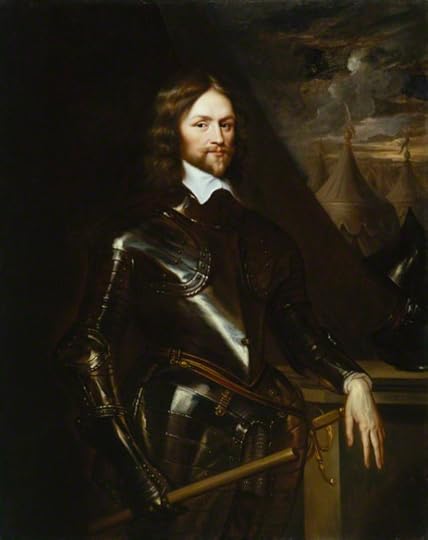
Anthony Van Dyck
circa 1650
Ireton was born in Nottinghamshire, the son of Puritan gentry. He was educated at Trinity College, Oxford and then the Middle Temple. In 1642,serving under Lord Essex, he led a troop of Horse before Edgehill but doesn’t seem to have met Cromwell until the following year. ��From then on, Ireton’s career was closely linked with that of Oliver. They make an interestingly contrasting pair. Cromwell the emotional extrovert, passionate and ebullient; and Ireton … the dark, ice-cold, ruthless intellectual.
Ireton fought at Marston Moor, Naseby and Bristol. And after the surrender of Oxford in June, 1646,he married Cromwell’s daughter, Bridget. ��Although he was a brave soldier, he wasn’t a particularly distinguished military commander. He did, however, have a very sharp intellect and managed to combine constitutional law with political reality – a rare gift among his fellow officers in the New Model.
He was effective if somewhat long-winded orator. Judging from the Putney Debates of 1647, he seems to have had a habit of saying that he desired ‘but one word’ and then remaining on his feet for half an hour or more at a time. The Debates were complex; an attempt to deal with the Army’s negotiations with the King, the Presbyterians in the Commons, the Agitators in the rank and file and, in time, the newly emerging Levellers. It was John Lilburne who described Ireton as ‘the cunningest of Machiavellians’ – a description open to argument. Certainly, during the talks at Putney, Ireton’s aim was to create a settlement which would guarantee peace, religious toleration and reasonable terms of disbandment for the common soldier.
Ireton was the principal architect of the Heads of the Proposals – the terms offered to Charles l in 1647. Terms which, though he didn’t immediately say so, the King had no intention of accepting.
During the Second Civil War in 1648 Ireton was responsible for putting Sir Charles Lucas and Sir George Lisle before a firing squad after the fall of Colchester. Then, later that same year, Ireton set in motion the moves which culminated in Pride’s Purge.
At the King’s trial, Ireton’s name was 4th on the list of Commissioners, only preceded by those of Bradshaw, Cromwell and Fairfax.
After the execution of Charles l, Ireton was appointed as Cromwell’s second-in-command in Ireland and, in 1650, he became Lord Deputy there. He took both Waterford and Limerick and gained a reputation for the ruthlessness with which he crushed the Irish. After the summary executions of Lucas and Lisle, this is hardly a surprise.
Weakened by incessant work and recurrent bouts of fever, he died in Ireland in November 1651 and was given a state funeral in Westminster Abbey.
After the Restoration, his remains were dug up and, along with those of Cromwell and Bradshaw, taken to Tyburn and hung there for a day. His head was cut off and exhibited in Westminster Hall where it remained for the next twenty-four years.
One final, interesting thought is this; if Ireton had survived Cromwell, might he have prevented the Restoration? Might he, indeed, have ended his days as Lord Protector? It’s not impossible.

December 12, 2014
Cancel Christmas!
Before the English Civil War, Christmas continued to be celebrated in England much as it had always been. December 25th was a public holiday on which shops and businesses were closed and special church services were held. Buildings were decorated with rosemary, holly and ivy and people did pretty much the same kind of thing we do today. Eating, drinking, carol singing, drinking, dancing, drinking, perhaps watching a play … and yet more drinking. And, to a greater or lesser degree, it went on for the full twelve days and culminated in the biggest knees-up of all on the Last Day of Christmas.
Inevitably, all this drinking led to drunken brawls and Lewd or Promiscuous Behaviour. Or so the killjoys said.
They may have had a point. On the other hand … cancelling Christmas? It’s a bit extreme, isn’t it?
But that’s exactly what they did.
In 1644, two years after the start of the Civil War, Christmas was banned by Act of Parliament and decreed, henceforth, to be an ordinary working day. The Puritans considered twelve days of roistering and jollification wasteful, decadent, morally deficient and almost unchristian. Some of them blamed it on on the Catholics; others said it was Pagan. None of them liked it.
So Christmas became illegal and went underground – taking the mince pies, plum puddings and Christmas songs with it. Officials roamed the streets, ready to arrest anyone caught burning a Yule Log or doing anything the least bit Merry. Wassailing was now a thing of the past. Presumably, the Puritans were happy – mostly because no one else was.
Illicit pamphlets were printed containing verses about Old Christmas so everyone remembered what they were missing.
Naturally, not everyone took the new law lying down. Yuletide discontent was responsible for angry mobs, riots and would-be Wassailers knocking seven bells out of the officials trying to arrest them. Everybody (except the Puritans) felt strongly about their Right To Party. Unfortunately, they had to wait until 1662 before the Merry Monarch made it legal again and Old Christmas was finally able to come out of the closet.
Love and joy come to you and to you your Wassail too
And God bless you and send you a Happy New Year
And God send you a Happy New Year!
And my own very best wishes to everyone for a Merry Christmas and a Happy New Year.

November 28, 2014
A SPLENDID DEFIANCE new paperback
A brand-new paperback edition of the extended/revised version of
A Splendid Defiance
is now available from Amazon and the Createspace e-store.
Due to inquiries from some readers, the e-version of A Splendid Defiance is now available as a paperback.
This has been done through Createspace, a branch of Amazon which prints books on demand. The charges for publishing in this way are quite high and these account for the £8.99 price tag. However, very few new copies of my novels as originally published still exist and, of those that do, some are being marketed at hugely inflated prices. For example, a new copy of the 1992 paperback of The Black Madonna will set you back a minimum of £208.67 – which is a totally unacceptable price for someone who, like me, merely wants a hard copy on their bookshelf.
Although I don’t expect there to be a huge demand for new paperbacks, I am considering gradually releasing my other titles in this format – the next in line being The Black Madonna. Naturally enough, as its author, I want a hard copy of The King’s Falcon to sit alongside its predecessors!
Having seen the proof of A Splendid Defiance, I’m pleased to say that the book has been well-produced as a large-format paperback and feels very substantial.
As always, any thoughts or opinions on this (or any other) matter will be welcome.

October 20, 2014
THE CAVALIER-POET WHO INVENTED CRIBBAGE
Sir John Suckling
1609 to 1642
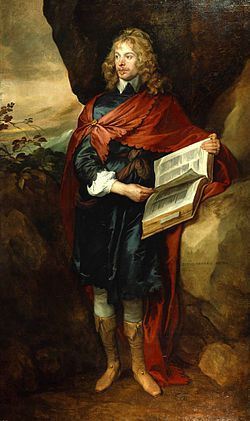
Sir John Suckling
by Anthony Van Dyck
Sandy-haired and slightly-built, Sir John Suckling had a passion for clothes, cards and women. He was also a courtier, an MP, a soldier, a wit and a poet. In January of 1641, he attended the marriage festivities of the Earl of Suffolk’s daughter, Margaret, to a son of the wealthy Earl of Cork and composed a ballad for the bride.
Her feet beneath her petticoat like little mice, stole in and out as if they feared the light;
But oh she dances such a way! No sun upon an Easter-day is half so fine a sight.
Within eighteen months of this happy occasion, Suckling would be dead.
He was born in Twickenham, Middlesex, educated at Trinity College, Cambridge and inherited his father’s estate at the age of eighteen. After a couple of years travelling abroad, he returned to England in 1630 and was knighted by Charles l but the following year saw him volunteering to fight in Germany under Gustavus Adolphus, one of the best military brains of his day. Once more back in England, Suckling turned his attention to less war-like pursuits.
He was a highly-adept card-player, his preferred game being Cribbage which he is reputed to have invented himself. He apparently travelled around the homes of various friends with whom he played ‘crib’ – from which he seems to have won an extraordinary amount of money. Perhaps as much as £20,000 which would equate to something in the region of four million by today’s values. If this was so, later events shed some light on what he did with this fortune.
Suckling and his friends William Davenant, Richard Lovelace and Edmund Waller have become known to us as the Cavalier Poets. There were other Cavaliers who wrote poetry but these four are considered a case apart – mainly because of their involvement in the conflict between Charles l and his Parliament. Of the four of them, Suckling probably took his poetry least seriously but much of it remains known to us. In 1638 he published his play Aglaura which, though not a critical success, was performed twice at the palace of Whitehall. Later in the same year, he followed Aglaura up with The Goblins which may have been his best work – although it was clearly influenced by Shakespeare’s The Tempest. A collection of his poems was first published in 1646 and would have included well-known verses such as Out Upon It I Have Loved, Why So Pale And Wan Fond Lover and When Dearest I But Think On Thee.
In 1639 and at a personal cost of £12,000, Suckling raised a troop of Horse to serve the King in the first Bishops’ War in Scotland. But by May of 1641, the world was rapidly changing as relations between King and Parliament deteriorated. Suckling took an active part in a plot to rescue the imprisoned Earl of Strafford and then in the so-called Army Plot, the aim of which was to seize the Tower of London. His involvement in both of these enterprises was betrayed to the Parliament by his brother-in-law, George Goring and, having been declared guilty of treason, Sucking was forced to flee the country.
He died a year later in Paris, utterly penniless and was buried there in a Protestant cemetery. Some say his death was caused by a razor-blade or nail driven into the sole of his boot by a thieving and ill-natured servant. The truth, sadly, is that he almost certainly perished by his own hand, having taken poison.
I prithee send me back my heart since I cannot have thine
For if from yours you will not part – why then shouldst thou have mine?
Yet now I think on’t, let it lie … to find it were in vain
For thou hast a thief in either eye to steal it back again.


October 16, 2014
‘Falcon’ Reviews & Reviewers
Many thanks to those who have already posted a review of The King’s Falcon.
As a brand-new title, every review helps.
And if you go to the Books pages, some of you may find your own words quoted there.
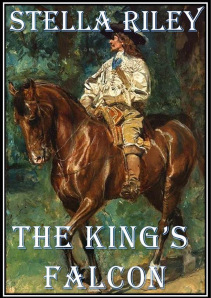
Mounted Cavalier
by Meissonnier
Also, click on the link for Romantic Historical Reviews. A piece is due out there tomorrow – October 17th.



